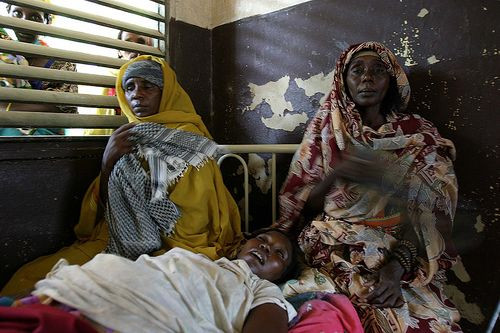First Malaria Vaccine Could Hit The Market In Africa By 2015, After 3 Decades Of Development

The world’s fourth-largest pharmaceutical company, GlaxoSmithKline (GSK), has announced its intent to seek licensing for the world’s first malaria vaccine, which the company hopes to distribute across Africa beginning in 2015.
Spread by disease-carrying mosquitoes, malaria stands as one of Africa’s largest continental threats, as the World Health Organization (WHO) reports that in 2010, 90 percent of all malaria deaths — some 660,000 people — occurred in the agency’s African region. The RTS,S vaccine, by comparison, showed significant efficacy in protecting children from the disease, with nearly half of all children aged 5 to 7 months, and a quarter of infants between 6 and 12 weeks, receiving protection.
Protection lasted only 18 months, which may not reassure parents in the industrialized world, but is expected to revitalize a continent that has seen millions die from the disease in a matter of years. GSK’s chief executive, Sir Andrew Witty, said the company has high hopes for the vaccine despite its waning effectiveness.
"While we have seen some decline in vaccine efficacy over time, the sheer number of children affected by malaria means that the number of cases of the disease the vaccine can help prevent is impressive," he said.
WHO estimates that 3.3 billion people currently face serious risk of contracting malaria. In 2010, there were roughly 219 million cases of malaria worldwide. But the organization is optimistic, if timidly so, as mortality rates have been dropping steadily since 2000, when they were 25 percent higher than they are today. In the WHO African region, rates have fallen 33 percent since 2000.
"Many millions of malaria cases fill the wards of our hospitals,” Halidou Tinto, a lead investigator on the RTS,S trial from Burkina Faso, told the BBC. "Progress is being made with bed nets and other measures, but we need more tools to battle this terrible disease.”
GSK has spent the last three decades developing the disease. Now, through partnerships with the nonprofit Path Malaria Vaccine Initiative (MVI), and supported by a $200 million investment from the Bill & Melinda Gates Foundation, the British pharmaceutical company hopes their seven-country study, which included nearly 15,500 children, will be granted licensure. So far, GSK has put in $350 million for the vaccine, and plans for another $260 million before it reaches children. The vaccine will be not-for-profit, but a five percent increase on its price will be added to offset future research into tropical diseases.
Before it can approach WHO to get approval, GSK must first submit its dossier — a distillation of over a million pages of paperwork, handled by 40 people — to the European Medical Agency next year. Only then will it have the chance to obtain a license.
The only hiccup to the study, experts argued, was how quickly doctors were available to treat children with negative reactions to the vaccine. Dr. Lucas Otieno, of the Kenya Medical Research Institute-Walter Reed Project, who’s been working on trials since 2005, said this may mean the vaccine is actually less effective than has been reported. However, he lauded the study’s ability to recruit volunteers — a hopeful note with perhaps darker undertones.
"The volunteers were keen across all the sites," he told The Guardian. "In my site, we had 1,631 children and we recruited the initial 1,000 within about three months, which was very impressive."



























